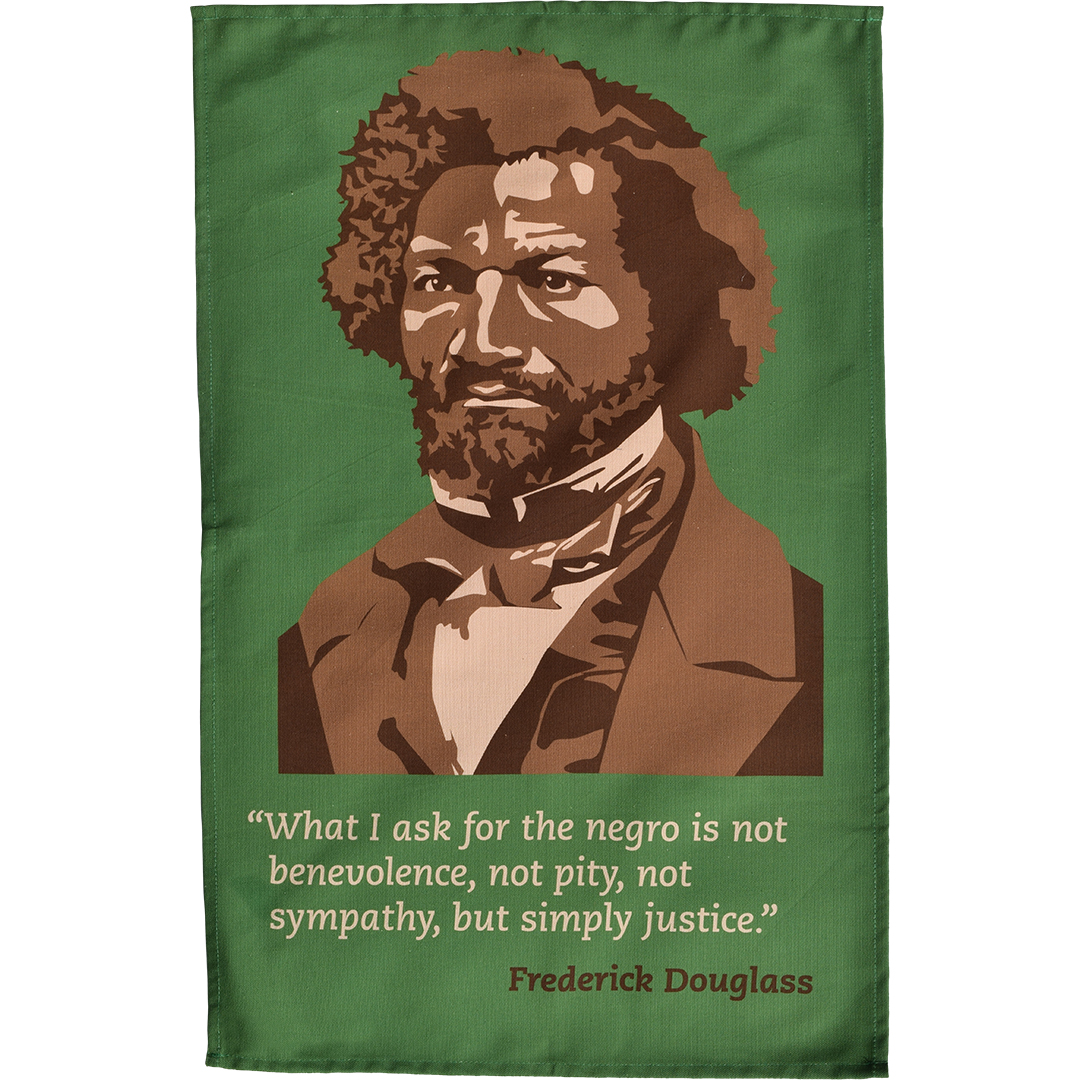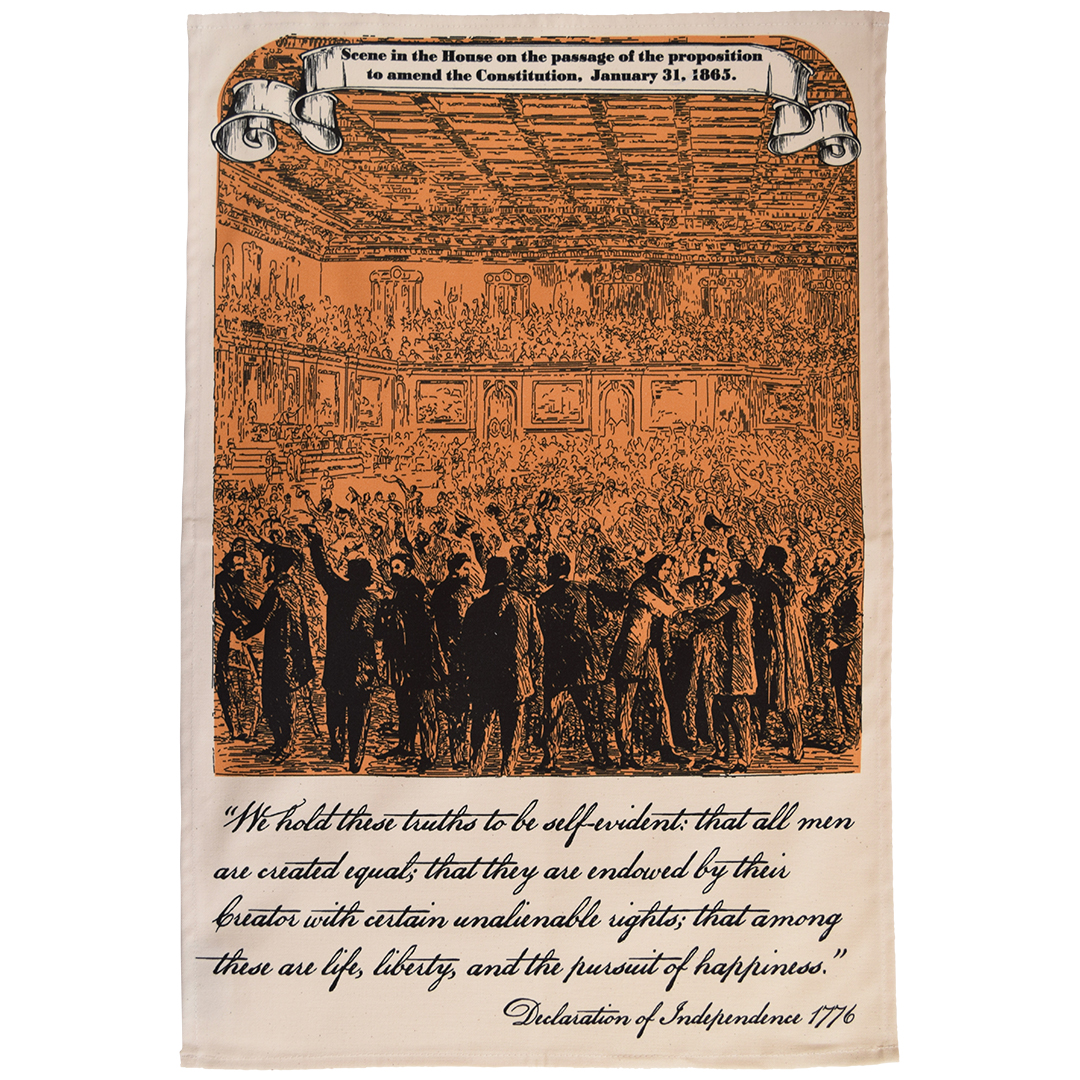The Liberator: William Lloyd Garrison and the Abolitionist Struggle
Posted by Pete on Dec 10th 2021

William Lloyd Garrison, circa 1870
The abolitionist you probably haven't heard of...
‘It was the glory of this man that he could stand alone with the truth, and calmly await the result.’
That’s how Frederick Douglass described William Lloyd Garrison when he died in 1879.
A fighter for abolition since the 1820s, Garrison is one of the great US radicals.
Despite having some disagreements about constitutional law, Douglass and Garrison were lifelong allies in the struggle against slavery.
Click to view our Frederick Douglass tea towel
Born on this day in 1805, he was the son of Canadian immigrants to Massachusetts.
After his dad abandoned the family, Garrison was raised in hardship by his mom, Frances Maria Lloyd.
At age 13, he began an apprenticeship at the Newburyport Herald. The newspaper experience would be important – very important.
Garrison’s biggest contribution to abolition would be through journalism: in 1831, he founded
The Liberator in Boston, which would become the most influential anti-slavery paper in America.

Garrison had got into abolitionism during the 1820s. He’d initially supported the American Colonization Society, calling for freed slaves in the US to be sent away to Africa.
At the end of the decade, Garrison abandoned this approach and publicly apologized for ever having supported it.
Influenced by the African-American abolitionist, William J. Watkins, Garrison’s ideal was now a free, multiracial democracy inside the United States.
He then became co-editor of the abolitionist Quaker newspaper,
Genius of Universal Emancipation, in Baltimore.
Garrison was far more radical than his partner, Benjamin Lundy, especially on the question of whether abolition should be gradual.
As with his approach to colonization, Garrison had previously endorsed gradualism but now judged it too moderate:
‘I unreflectingly assented to the popular but pernicious doctrine of gradual abolition. I seize this moment to make a full and unequivocal recantation, and thus publicly to ask pardon of my God, of my country, and of my brethren the poor slaves, for having uttered a sentiment so full of timidity, injustice, and absurdity.’
By the time he launched The Liberator in 1831, Garrison was on the radical, visionary edge of the abolitionist movement.
Garrison's campaigning was essential to the passing of the 13th Amendment, abolishing slavery in the United States.
Click to view our Reconstruction Amendments tea towel
Garrison’s Liberator demanded immediate and total abolition, without ‘compensation’ for the slaveholders:
‘I do not wish to think, or speak, or write, with moderation. No! No! Tell a man whose house is on fire to give a moderate alarm… tell the mother to gradually extricate her babe from the fire into which it has fallen.’
Pushing this message, The Liberator soon had a big readership, with supporters arranging for it to be sent to politicians in Washington D.C.
It also had a lot of enemies.
Nat Turner's slave rebellion broke out in Virginia just seven months after its launch, and slavers in the South decided to blame Garrison. The State of Georgia put a $5,000 bounty on his head.
Garrison also faced intimidation and violence by pro-slavery mobs in the North, but he kept on printing, undaunted, through the middle decades of the century.
But Garrison’s radicalism was multi-faceted: he committed The Liberator to the emerging feminist movement as well.
Garrison published the writings of the Grimké sisters, and he refused to take his seat at the 1840 World Anti-Slavery Convention in London when the women in the US delegation were denied entry. Garrison went out and stood with them in the spectators’ gallery.
Outside of his journalism, Garrison was a frontline political activist for racial and gender equality, serving in various organizations.
He co-founded and led the American Anti-Slavery Society from 1832 to 1865, but always rejected party politics. Unlike some other abolitionists, Garrison believed the US political system was inherently pro-slavery – an unreformable monstrosity.
Still, he gave all his support to the Union cause in the Civil War, rejoicing in its victory.
Rowing toward justice and against the current for most of his life, William Lloyd Garrison was one of the truly great 19th century Americans.
Key Dates in William Lloyd Garrison’s Life
- 10 December 1805: William Lloyd Garrison born in Newburyport, Massachusetts
- 1818: Begins work as an apprentice at the Newburyport Herald
- 1826: John Rankin’s Letters on Slavery are published, influencing Garrison’s commitment to abolition
- 1828: Made editor of the National Philanthropist in Boston
- 1829: Garrison abandons support for the American Colonization Society and becomes co-editor of the abolitionist paper, Genius of Universal Emancipation
- 1831: Having embraced radical, immediate abolition, Garrison launches The Liberator in Boston
- December 1833: Garrison co-founds the American Anti-Slavery Society
- 4 September 1834: Marries fellow abolitionist, Helena Eliza Benson (1811-76)
- October 1835: Garrison almost tarred-and-feathered by a pro-slavery Boston mob
- 1837: Garrison commits The Liberator to the early women’s movement
- February 1849: Garrison signed a petition to the Massachusetts State Legislature for women’s suffrage – the first of its kind in the US
- May 1850: At the first National Woman’s Rights Convention, Garrison encouraged the movement to adopt suffrage as its main goal
- 1865: Upon Union victory in the Civil War and the constitutional abolition of slavery, Garrison resigned his presidency of the American Anti-Slavery Society
- 1870: Garrison became associate editor of the women’s suffrage journal, the Woman’s Journal
- 25 May 1879: William Lloyd Garrison dies


